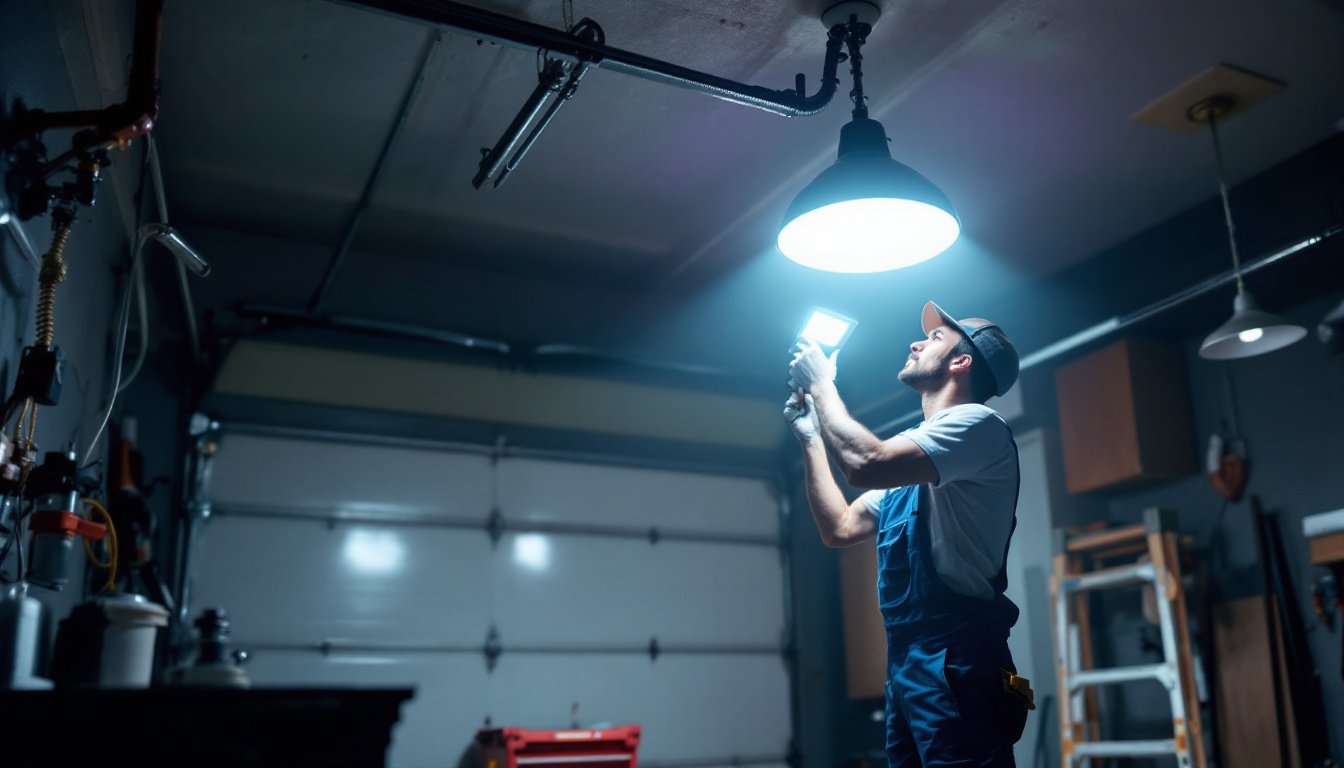
Compliance in the lighting industry is a crucial aspect that every lighting contractor must grasp. It encompasses a wide range of regulations, standards, and guidelines that ensure safety, efficiency, and environmental responsibility. As the industry evolves, so do the requirements that govern it, making it essential for contractors to stay informed.
Failure to comply with these regulations can lead to serious consequences, including fines, project delays, and even legal action. Therefore, a thorough understanding of compliance is not just beneficial; it is imperative for the success of any lighting contractor.
Several key regulations and standards govern the lighting industry. These include the National Electrical Code (NEC), Energy Policy Act (EPAct), and various local building codes. Each of these regulations has specific requirements that contractors must adhere to when designing, installing, or maintaining lighting systems.
For example, the NEC outlines the safety standards for electrical installations, including proper wiring methods and equipment specifications. Understanding these regulations helps ensure that installations are safe and up to code, which is vital for protecting both the contractor and the client. Moreover, staying updated on amendments to these codes is essential, as they can change frequently based on technological advancements and safety research.
In addition to safety regulations, environmental compliance has become increasingly important in the lighting industry. Contractors must be aware of laws regarding energy efficiency and waste management, particularly when it comes to the disposal of hazardous materials like fluorescent bulbs.
Many regions have adopted strict regulations aimed at reducing carbon footprints and promoting sustainability. This includes compliance with the Energy Star program, which sets energy efficiency standards for lighting products. Contractors should familiarize themselves with these guidelines to ensure their projects align with current environmental standards. Furthermore, embracing sustainable practices not only aids in compliance but also enhances a contractor’s reputation, as clients are increasingly seeking eco-friendly solutions in their projects.
Additionally, the rise of smart lighting technologies has introduced new compliance challenges. These systems often integrate with building management systems and require adherence to cybersecurity standards to protect against unauthorized access. As the demand for smart lighting solutions grows, contractors must be proactive in understanding both the technical requirements and the regulatory landscape surrounding these innovations. This knowledge can provide a competitive edge in a rapidly evolving market, where clients are looking for cutting-edge solutions that meet both their functional and compliance needs.
Staying informed about compliance issues is essential for lighting contractors. The landscape of regulations is constantly changing, and new technologies are frequently introduced, which can affect compliance requirements. Regularly updating knowledge can help contractors avoid pitfalls and ensure their work meets the latest standards.
Participating in industry seminars, workshops, and training sessions can be beneficial. These events often cover recent changes in regulations and provide insights into best practices. Additionally, joining professional organizations can offer valuable resources and networking opportunities that keep contractors informed about compliance issues. Engaging in discussions with peers at these events can also spark innovative ideas and solutions that enhance compliance strategies.
There are numerous resources available to help lighting contractors navigate compliance challenges. Online platforms, government websites, and industry publications often provide up-to-date information on regulations and standards. Utilizing these resources can save time and effort in understanding complex compliance issues. Furthermore, subscribing to industry newsletters can ensure that contractors receive timely updates directly in their inbox, allowing them to stay ahead of any changes that may impact their work.
Moreover, engaging with suppliers and manufacturers can provide insights into compliance-related products and technologies. Many manufacturers offer guidance on how their products meet specific regulations, which can be invaluable for contractors during the selection process. Additionally, some manufacturers may host webinars or create detailed guides that delve into compliance topics, helping contractors understand not just the ‘what’ but also the ‘why’ behind certain regulations. This deeper understanding can empower contractors to make informed decisions that align with both legal requirements and best practices in the industry.
Implementing best practices in compliance can streamline the process for lighting contractors. By establishing a systematic approach to compliance, contractors can ensure that all aspects of their projects adhere to necessary regulations and standards. This proactive stance not only mitigates risks but also enhances project efficiency, allowing contractors to focus on delivering quality work rather than navigating compliance pitfalls.
One effective strategy is to develop a compliance checklist tailored to specific projects. This checklist should include all relevant regulations, standards, and best practices that need to be followed. Regularly reviewing this checklist can help identify any potential compliance issues before they become problematic. Furthermore, integrating digital tools for checklist management can facilitate real-time updates and notifications, ensuring that all team members are aligned and informed throughout the project lifecycle.
Proper documentation and record-keeping are vital components of compliance. Keeping detailed records of all project-related documents, such as permits, inspection reports, and compliance certifications, can provide proof of adherence to regulations. This documentation can be crucial in the event of an audit or dispute. In addition to physical records, utilizing cloud-based storage solutions can enhance accessibility and security, allowing team members to retrieve important documents from anywhere, thus promoting efficiency and collaboration.
Additionally, maintaining clear communication with clients regarding compliance can foster trust and transparency. Providing clients with documentation that demonstrates compliance can enhance the contractor’s reputation and lead to repeat business. Regular updates about compliance status and any changes in regulations can also keep clients informed and engaged, ultimately contributing to a stronger client-contractor relationship built on reliability and professionalism.
Training employees on compliance issues is another best practice that can significantly impact a contractor’s success. Ensuring that all team members understand the importance of compliance and how to adhere to regulations can prevent costly mistakes and enhance overall project quality. This understanding not only empowers employees but also cultivates a sense of ownership over their work, encouraging them to take initiative in maintaining compliance standards.
Regular training sessions can keep employees updated on the latest compliance requirements and best practices. This investment in employee education not only improves compliance but also contributes to a culture of safety and responsibility within the organization. Furthermore, incorporating hands-on training and real-world scenarios can make these sessions more engaging and effective, ensuring that employees are not only informed but also equipped to apply their knowledge in practical situations. By fostering an environment of continuous learning, contractors can adapt to evolving regulations and maintain a competitive edge in the industry.
In addition to federal regulations, lighting contractors must also navigate local and state regulations that may impose additional requirements. These regulations can vary significantly from one jurisdiction to another, making it essential for contractors to be familiar with the specific laws that apply to their projects.
Local building codes may dictate specific installation practices, while state regulations might focus on energy efficiency standards. Understanding these local nuances can help contractors avoid compliance issues and ensure that their projects are completed successfully.
Engaging with local authorities can provide valuable insights into compliance requirements. Building departments and regulatory agencies often have resources available to help contractors understand local regulations. Establishing a good relationship with these authorities can facilitate smoother project approvals and inspections.
Moreover, attending local government meetings or forums can help contractors stay informed about upcoming changes in regulations or policies that may affect their work. This proactive approach can give contractors a competitive edge in the industry.
Advancements in technology have significantly impacted the way compliance is managed in the lighting industry. From software solutions that streamline project management to smart lighting systems that enhance energy efficiency, technology plays a crucial role in ensuring compliance.
Utilizing project management software can help contractors keep track of compliance-related tasks and deadlines. These tools can automate reminders for inspections, permit renewals, and documentation submissions, reducing the risk of oversight.
Smart lighting solutions are becoming increasingly popular due to their energy efficiency and compliance with environmental regulations. Many of these systems are designed to meet or exceed energy efficiency standards, making them an attractive option for contractors looking to ensure compliance.
Incorporating smart lighting technology into projects can also enhance the overall quality of installations. Features such as automated controls and energy monitoring can help clients reduce energy costs while ensuring that their lighting systems remain compliant with regulations.
Despite the importance of compliance, lighting contractors often face various challenges in navigating regulations. These challenges can stem from the complexity of regulations, the rapid pace of technological advancements, and the need for continuous education.
One common challenge is the lack of clarity in regulations. Many contractors find it difficult to interpret complex legal language or understand how specific regulations apply to their projects. This can lead to confusion and potential compliance issues.
Another significant challenge is keeping up with changes in regulations. As new technologies emerge and environmental concerns grow, regulations are continuously updated to reflect these changes. Contractors must remain vigilant and proactive in staying informed about these updates to avoid non-compliance.
Establishing a network of industry professionals can be beneficial in overcoming these challenges. Collaborating with other contractors, suppliers, and regulatory experts can provide valuable insights and support in navigating compliance issues.
In conclusion, compliance is a critical aspect of the lighting industry that every contractor must prioritize. Understanding the regulations, staying informed, and implementing best practices can significantly enhance the success of lighting projects. By embracing technology and engaging with local authorities, contractors can navigate compliance challenges effectively.
Ultimately, a commitment to compliance not only protects the contractor but also ensures the safety and satisfaction of clients. As the lighting industry continues to evolve, staying ahead of compliance requirements will be key to thriving in this competitive field.
Ready to ensure your lighting projects are not only compliant but also executed with the highest quality materials? Look no further than LumenWholesale for all your lighting needs. We provide contractors with spec-grade lighting products that meet rigorous industry standards, all at unbeatable wholesale prices. Say goodbye to local distributor markups and hello to premium lighting solutions that come with the convenience of free shipping. Make your next project a shining example of quality and value. Visit LumenWholesale now to explore our extensive selection and take advantage of the best value in wholesale lighting.

Discover how LED garage lamps can transform your business with increased efficiency and customer satisfaction.

Discover essential tips to avoid common Mercury Vapor Lamp Ballast mistakes.

Discover the pitfalls of purchasing architectural round pendant lights in bulk from local distributors.

Discover the innovative strategies lighting contractors use to integrate T12 fluorescent bulbs into modern projects.